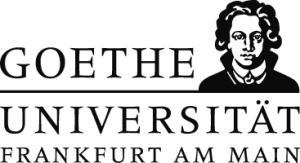Moving Cultures, Transcultural Encounters
Sovereignty On Camera: Documentary, Performance and War in Syria
As the Syrian revolution, which began as a peaceful grassroots movement, became militarised in 2012, the Syrian government started losing ground in different parts of the country. From the early days, these ‘liberated areas’ became experimental spaces of difference where new forms of governance were implemented. In disparate ways, they aimed to prefigure the post-revolution, post-Assad era. However, as early as Spring 2013 there were plenty of cases of corruption, power-abuses and brutality in the areas controlled by the Free Syrian Army (FSA) (Yassin-Kassab and al-Shami, 2016: 127), which seemed to mimic the ways of the Assad regime. As a reaction, many fighters and civilians turned towards Islamist principles as a guarantee of order and as an alternative to both the perceived lawlessness of the secular opposition and the relentless brutality of the government. By late 2013 infighting between opposition militias, and between conflicting visions of sovereignty, had become rampant, seeing the emergence of old jihadi ghosts from the post-9/11 imaginary and, in the process, attracting much journalistic attention.
The breadth of documentaries produced about the Syrian war is incredibly large. Given that this is an ongoing conflict, which has attracted great attention and involvement from global players, the propagandistic nature of many of these documentaries is overt and their proliferation can be seen as a filmic avatar of the war itself. These war documentaries are part of a documentary war in which image, information and emotional involvement have become weaponised in a heavily media-mediated war. In order to offer a brief introduction to the genre I will assess a few examples of both religious and secular sovereignty performed for journalists working for a variety of media outlets. Many of these documentaries are shot inside religious sovereignties, and they at once replicate and challenge some of the representational trends of the post-9/11 gothic. By directly showing the human faces and voices of Islamist fighters, these war documentaries debunk the narrative of the shapeless, anomalous, faceless threat of jihadism. On the other hand, by giving voice to the fighters’ threats and depicting their violent acts they also confirm the monstrous image of the post-9/11 oriental. These ambiguous and often contradictory representations lie as much with the subjects’ desired self-presentation in front of the camera, as with the agendas of filmmakers behind the camera. The representational pact also includes a unique feature: these documentaries are not only raw accounts of the daily reality of war, but also opportunities to perform the state for the camera. From this angle, the fighters do not only appear as destroyers but as builders of a new order, thus complicating the image of the jihadi as an irrational, nihilistic and wild subject.
Enrique Galvan-Alvarez is a lecturer at Universidad Internacional de La Rioja-UNIR. His doctoral research was focused on the English-language poetry written by diaspora and exiled Tibetans. His post-doctoral research has been largely concerned with the emergence of postcolonial states and anti-colonial anarchism. Enrique has published a monograph on modern Indian fiction and its connections to the pre-modern and pre-colonial, along with many journal articles and book chapters on Tibetan-English literature, postcolonial nation building and the use of religious narratives to either legitimate or resist the state in Japan, Syria and the Canary Islands.


